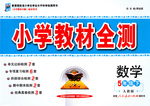题目内容
With the summer holiday just around the corner,it seems like everybody is busy planning their vacations.Here are some tips that can help you enjoy your holiday without emptying your pocket.
Travel off-season
Go to your desired destination while the demand is low and take advantage of huge discounts.During the peak season,the hotel and flight prices increase quickly,and you’ll likely spend more of your vacation time standing in line due to the rush of tourists.1.
2.Websites can help you find discount hotel rooms.Look for places that do not charge extra for children if they use the existing bedding.Stay with the locals.If you and your family are going,to stay for a longer period,renting a small apartment is a good choice.
Eat like a local
Why eat at big chain restaurants when you can experience something new? Planning your meals is another way to reduce your travel costs.During your family trip,try new food where“the locals eat.3. For smaller meals and snacks,avoid restaurants and try street food or other takeout.
Don’t hesitate to bargain
Tourist-heavy places are known for overcharging for just,about everything.Clothes,travel goodies,souvenirs,etc.are very expensive at these places.For this reason;you shouldn’t feel ashamed to ask for bargains.4.
Choose local transportation
As a tourist,avoid taking taxis.Whenever possible,since? They are expensive. 5. If you are planning to stay for a while,you can consider renting a car.Hiring a car is much easier than carrying your bags everywhere if you are moving around a lot.
A.Save on hotels.
B.Surf the Internet while traveling.
C.Therefore,avoid buying anything there.
D.So it's best to find out when the off-season starts.
E.This will not only save money,but offer you a new and different experience.
F.Bargain hard to get the best price.
G.Instead,take buses,railways or subways,which are always cheaper.
 小学教材全测系列答案
小学教材全测系列答案

 ),并在其下面写出该加的词。删除:把多余的词用(\)划掉。修改:在错的词下画一横线,并在该词下面写出修改后的词。
),并在其下面写出该加的词。删除:把多余的词用(\)划掉。修改:在错的词下画一横线,并在该词下面写出修改后的词。